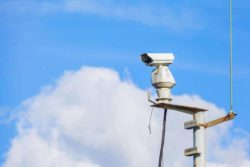
5 Effective CCTV Maintenance Tips for Practical Use

Let’s go through the CCTV maintenance checklist that you can use to ensure your CCTV system is working at its best.
1. Is the lens clear?
CCTV cameras are often neglected and endure the harsh elements of nature over time. Your CCTV system may be systematically perfect, but if the camera lens is smudged or dirty then it is of no use. In order to make sure you have a video feed at all times, look for dust, water spots and smudges on the lens of all your cameras and clean the debris right off, preferably, with a CCTV camera cleaning solution.
2. Is the landscape trimmed?
In order to have a clear and vast over sight of your property, you need to keep obstructions to a minimum. If bushes and trees are left unattended, they can take up a lot of space and block off everything behind them. Make sure that all the vines, trees and bushes near your CCTV camera are trimmed and don’t obstruct the camera.
3. Is your power supply good to go?
In the event of a storm, it is important to check the power supply to the CCTV system. If it is connected to a UPS, then make sure its battery is fully charged. Not checking the power supply thoroughly after an unwanted natural event can result in loss of power for the CCTV system and from that point on, it would be futile until the power supply is corrected. You might want to check whether the cameras are supplied with their recommended voltage using a voltmeter. If it isn’t, your camera is going to malfunction and fail often.
4. Is the wiring in good condition?
The wiring and cables of a CCTV system are just as important of a component as the cameras. Check whether the wiring is free of fray and wear. Because the wiring is laid outdoors too, it needs to be properly insulated. Additionally, the connectors and cable entry points are the two main areas where loose wiring problems occur so check them to ensure the wiring is positioned correctly. The coaxial connectors must also be insulated. Furthermore, to maximize the input from the cameras to the control room, checking the transmitted video signal is one of the best things you can do. The signal must be free of distortion, EMI and rolling.
5. Is your DVR clean?
Over time, DVRs can accumulate layers of dust over them and this can take a toll on its performance. Wipe your DVR regularly to prevent dust from depositing in the first place. It is best to use microfiber cloth for wiping. You may also use a blower for those hard to reach crevices.













